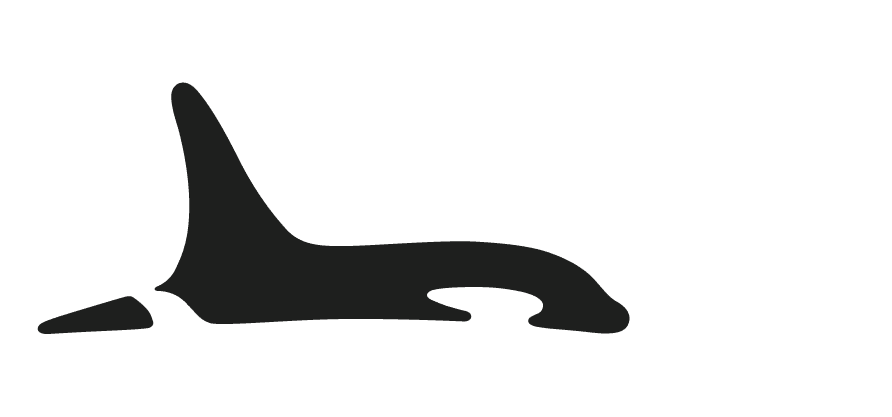Southern Resident killer whales primarily eat Chinook salmon. Chinook, also known as King Salmon, is the largest of the Pacific salmon, with the highest fat content and therefore has the highest calorie count essential for supporting the health of these large mammals, who need to consume 20 full-bodied salmon per day to survive.
These whales fish for Chinook salmon up and down the Pacific Coast from Monterey, California into British Columbia, Canada. Unfortunately, wild Chinook salmon has been overfished for decades and their river spawning habitats have been severely altered by dams, logging, development and pollution. Eight populations of wild Chinook salmon are also threatened with extinction.
There are many consumer guides to choosing ocean-friendly seafood. Some give a green light to eating Chinook salmon, especially from Alaska. However, Chinook salmon travel hundreds of miles in the Pacific Ocean to feed, and studies by the Pacific Salmon Commission show 97% of the Chinook caught in Southeast Alaska fisheries originated in a river outside of Alaska!
This prevents these individuals from returning to their river of origin in BC, Washington or Oregon, and spawning to produce the next generation; furthering endangering these populations. It also reduces the number of Chinook passing through the fishing grounds of the Southern Resident killer whales, and so deprives them of foraging opportunities.
For these reasons, we suggest you find an alternative to Chinook salmon until such times as wild populations are restored, and sustainable.
For now, let’s Leave Wild Chinook for Wild Orcas.


